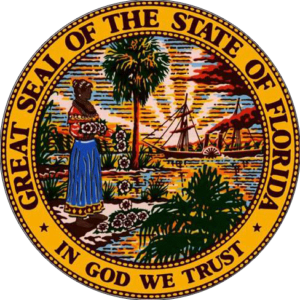Tourism, revenue down
 We’re beginning to get an idea of the hit that Florida’s state budget has taken from the economic downturn created by the coronavirus pandemic. Sales tax and other revenue were down $878 million in the state’s April estimate, with more than a third of that amount representing delayed payments expecting to be recaptured later. Meanwhile, FEMA is sending nearly $252 million to Florida to reimburse for virus expenses.
We’re beginning to get an idea of the hit that Florida’s state budget has taken from the economic downturn created by the coronavirus pandemic. Sales tax and other revenue were down $878 million in the state’s April estimate, with more than a third of that amount representing delayed payments expecting to be recaptured later. Meanwhile, FEMA is sending nearly $252 million to Florida to reimburse for virus expenses.
Senate President Bill Galvano released a memo on the April general revenue collection report. Sales Tax collections – the largest source of Florida’s revenue at 21% currently – were down $598.2 million. A large part of this loss is attributed to declines in tourism and hospitality-related industries, as well as auto sales. Together with other revenue shortfalls, the state‘s overall combined loss was $878.1 million.
However, the memo notes that three key revenue sources that came in below estimate in April were materially affected by formal state orders allowing delayed payment of the taxes or fees until June or later:
- Corporate Income Tax – under by $246.0 million
- Highway Safety Fee – under by $20.2 million
- Corporate Filing Fee – under by $56.9 million
Also mitigating the losses is the terrific January, February, and March revenue reports, that combined came in at $202.4 million over estimate. Certainly it’s true that Florida’s number one industry – tourism – has taken a big hit. Just how big, we won’t know until mid-summer. Visit Florida’s first quarter report shows the tourist count fell 10.7%, but that only captured the very early impacts of the stay-at-home orders nationwide that began on March 13. The second quarter report is expected to be much worse, with Visit Florida noting “in many ways, COVID-19 has the potential to impact consumer behavior for years to come.” Yet, as we noted at the top of the newsletter, the theme parks are now reopening.
Senator Galvano’s memo says that he’s looking for further federal clarification on whether the $4.6 billion in state stabilization funds can be used not only to pay for direct expenses related to the state’s response to COVID-19, but also to address the very real cost of revenue loss that was a direct result of shutting down our economy to protect lives. Meanwhile, Governor DeSantis last week said FEMA will cover 75% of the state’s expenses from March 13 through the end of April, covering $251,901,828 of the total $335,869,104.
On the insurance front, while Florida courts are closed until at least July 2, that doesn’t mean lawsuits can’t still be filed eventually. We’ve discussed the ongoing challenge facing insurance companies and commercial policyholders over business interruption insurance. Global insurance broker and risk manager Marsh is out with a new report, Pandemic Risk Protection: Accelerate Recovery and Build Resilience Now Through Public-Private Partnership. Marsh says the stakes are too high for all parties to defer action on a pandemic risk insurance program, which the report suggests be built upon a public-private mechanism, given the US government is the only entity with the financial resources to help close the existing coverage gap.
LMA Newsletter of 6-8-20

